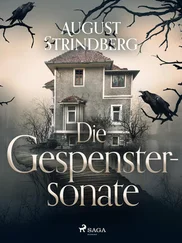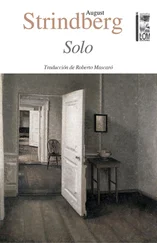August Strindberg - Historical Miniatures
Здесь есть возможность читать онлайн «August Strindberg - Historical Miniatures» — ознакомительный отрывок электронной книги совершенно бесплатно, а после прочтения отрывка купить полную версию. В некоторых случаях можно слушать аудио, скачать через торрент в формате fb2 и присутствует краткое содержание. Жанр: foreign_prose, foreign_antique, на английском языке. Описание произведения, (предисловие) а так же отзывы посетителей доступны на портале библиотеки ЛибКат.
- Название:Historical Miniatures
- Автор:
- Жанр:
- Год:неизвестен
- ISBN:нет данных
- Рейтинг книги:5 / 5. Голосов: 1
-
Избранное:Добавить в избранное
- Отзывы:
-
Ваша оценка:
- 100
- 1
- 2
- 3
- 4
- 5
Historical Miniatures: краткое содержание, описание и аннотация
Предлагаем к чтению аннотацию, описание, краткое содержание или предисловие (зависит от того, что написал сам автор книги «Historical Miniatures»). Если вы не нашли необходимую информацию о книге — напишите в комментариях, мы постараемся отыскать её.
Historical Miniatures — читать онлайн ознакомительный отрывок
Ниже представлен текст книги, разбитый по страницам. Система сохранения места последней прочитанной страницы, позволяет с удобством читать онлайн бесплатно книгу «Historical Miniatures», без необходимости каждый раз заново искать на чём Вы остановились. Поставьте закладку, и сможете в любой момент перейти на страницу, на которой закончили чтение.
Интервал:
Закладка:
“Socrates, my friend,” he began, “this is the farewell of a dying man. You were the wisest, but take it not ill if I say, ‘Be not too wise’; seek not the unattainable, and confuse not men’s minds with subtleties; do not make the simple complicated. You wish to see things with both eyes, but he who shoots with the bow, must close one eye; otherwise he sees his mark doubled. You are not a Sophist, but may easily appear so; you are not a libertine, but you go about with such; you hate your city and your country, and rightly; but you should love them to the death, for that is your duty; you despise the people, but you should be sorry for them. I have not admired the people, but I have given them laws and justice; therefore I die!
“Good-night, Socrates! Now it is dark before my eyes. You shall close them, and give me the garland. Now I go to sleep. When I awake, if I awake, then I am on the other side, and then I will send you a greeting, if the gods allow it. Good-night.”
“Pericles is dead. Hear it, Athenians, and weep as I do!”
The people streamed thither, but they did not weep. They only wondered what would now happen, and felt almost glad of a change.
Cleon the tanner stood in the orator’s pulpit in the Pnyx. Among his most attentive hearers were Alcibiades, Anytos, and Nicias. Cleon said: “Pericles is dead, and Pericles is buried; now you know it. Let him rest in peace with his merits and faults, for the enemy is in Sphacteria, and we must have a commander; Pericles’ shadow will not serve for that. Here below sit two adventurers, fine gentlemen both; one is called Nicias, because he never has conquered; the other Alcibiades, and we know his conquests—goblets and girls. On the other hand, we do not know his character, but you will some day know him, Athenians, and he will show his incisors himself. Such and such and such a one have been proposed for commander—oddly enough all fine gentlemen, and all grandees, of course. Athens, which has abjured all kings and their like, must now fight with royal Sparta, and must, faithful to its traditions, appear in the field under a man of the people on whom you can rely. We need no Pericles who commissions statues and builds temples to Fame and Glory; Athens has enough of such gewgaws. But now we must have a man who understands the art of war, who has a heart in his breast and a head on his shoulders. Whom do you wish for, men of Athens?”
Alcibiades sprang up like a young lion, and went straight to the point. “Men of Athens, I propose Cleon the tanner, not because he is a tanner, for that is something different. At any rate the army may be compared to an ox-skin, and Cleon to a knife; but Cleon has other qualities, especially those of a commander. His last campaign against Pericles and Phidias closed with a triumph for him. He has displayed a courage which never failed, and an intelligence which passed all mortal comprehension. His strategy was certainly not that of a lion, but he conquered, and that is the chief point. I propose Cleon as leader of the campaign.”
Now it so fell out that this patent irony was still too subtle for the mob, who took it seriously. Alcibiades also had a certain influence with them because of his relationship to Pericles, and they listened to him readily. Accordingly the whole assembly called out for Cleon, and he was elected.
But Cleon had never dreamt of the honour of being commander, and he was prudent enough not to endeavour to climb beyond his capacity. Therefore he protested against the election, shouting and swearing by all the gods.
Alcibiades, however, seized the opportunity by the forelock, and, perceiving that the election of Cleon meant his death, he mounted an empty rostrum and spoke with emphasis: “Cleon jests, and Cleon is modest; he does not himself know what sort of a commander he is, for he has not proved himself; but I know who he is; I insist upon his election; I demand that he fulfil his duty as a citizen; and I summon him before the Areopagus if he shirks it when the fatherland is in danger.” “Cleon is elected!” cried the people.
But Cleon continued to protest, “I do not know the difference between a hoplite and a peltast; [Footnote: a heavy-armed and a light-armed soldier.] I can neither carry a lance nor sit upon a horse.”
But Alcibiades shouted him down. “He can do everything; guide the State and criticise art; carry on law-suits and watch Sophists; he can discuss the highest subjects with Socrates; in a word, he possesses all the public virtues and all the private vices.”
Now the people laughed, but Cleon did not budge.
“Athenians!” said Alcibiades in conclusion, “the people have spoken, and there is no appeal. Cleon is elected, and Sparta is done for!”
The assembly broke up. Only Cleon remained behind with his friend Anytos. “Anytos!” he said. “I am lost!”
“Very probable!” answered Anytos.
But Alcibiades went off with Nicias: “Now Cleon is as dead as a dog. Then comes my turn,” he said.
Socrates walked, deep in thought, up and down the courtyard of his house, which was very simple and had no colonnades. His wife was carding wool, and did it as if she were pulling someone’s hair.
The wise man kept silence, but the woman spoke—that was her nature. “What are you doing?” she asked.
“For the sake of old acquaintance, I will answer you, though I am not obliged to do so. I am thinking.”
“Is that a proper business for a man?”
“Certainly; a very manly business.”
“At any rate no one can see what you are doing.”
“When you were with child, it was also invisible; but when, it was born, it was visible, and especially audible. Thus occupations which are at first invisible, become visible later on. They are therefore not to be despised, least of all by those who only believe in the visible.”
“Is your business with Aspasia something of that sort?”
“Something of that, and of another sort too.”
“You drink also a good deal.”
“Yes, those who speak become thirsty, and the thirsty must drink.”
“What is it in Aspasia that attracts men?”
“Certain qualities which give zest to social intercourse—thoughtfulness, tact, moderation.”
“You mean that for me?”
“I mean it for Aspasia.”
“Is she beautiful?”
“No.”
“Anytos declares that she is.”
“He tells an untruth. Do you see Anytos, Cleon’s friend and my enemy?”
“He is not my enemy.”
“But mine. You always love my enemies and hate my friends; that is a bad sign.”
“Your friends are bad men.”
“No, on the contrary. Pericles was the greatest of the Athenians, Phidias the best, Euripides the noblest, Plato the wisest, Alcibiades the most gifted, Protagoras the most acute.”
“And Aristophanes?”
“He is my enemy, though I do not know why. I suppose you have heard of the comedy which he has written about me.”
“Anytos told me. Have you seen it?”
“I saw the Clouds yesterday.”
“Was it amusing—was it clever?”
“What did Anytos think?”
“He made me laugh when he described some scenes.”
“Then it must be amusing, or you would not have laughed.”
“Did you not laugh, my Socrates?”
“Yes, of course; otherwise they would have thought me a blockhead. You know that he has depicted me as a rogue and fool. Since I am neither, it was not serious; therefore it was in jest.”
“Do you think so? I think it was serious.”
“And you laugh at the serious? Do you weep, then, at jesting? Then you would be mad.”
“Do you think I am mad?”
“Yes, if you think me a rogue.”
“You know that Cleon is with the army.”
“I was astonished to hear it.”
Читать дальшеИнтервал:
Закладка:
Похожие книги на «Historical Miniatures»
Представляем Вашему вниманию похожие книги на «Historical Miniatures» списком для выбора. Мы отобрали схожую по названию и смыслу литературу в надежде предоставить читателям больше вариантов отыскать новые, интересные, ещё непрочитанные произведения.
Обсуждение, отзывы о книге «Historical Miniatures» и просто собственные мнения читателей. Оставьте ваши комментарии, напишите, что Вы думаете о произведении, его смысле или главных героях. Укажите что конкретно понравилось, а что нет, и почему Вы так считаете.












